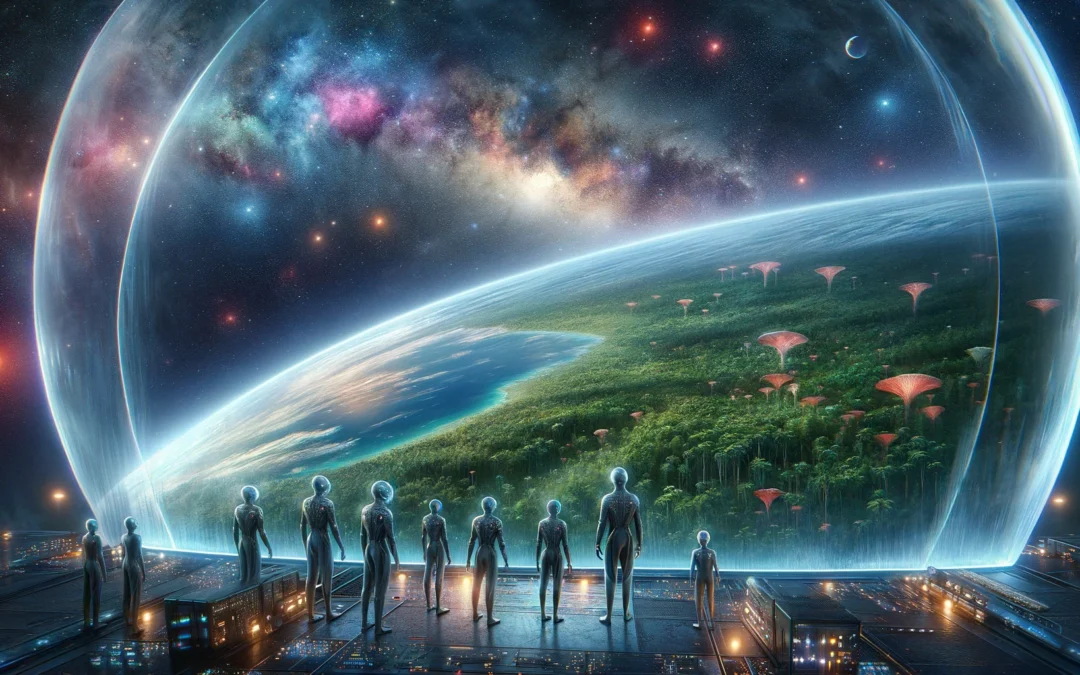The Zoo Theory, a concept as intriguing as it is controversial in the realm of extraterrestrial intelligence, posits a scenario where advanced civilizations intentionally avoid contact with Earth to allow for natural evolution and sociocultural development. It’s akin to zookeepers observing animals in a zoo, hence the name.
Imagine, if you will, a universe teeming with life, a cosmic wilderness where sentient beings traverse the vast emptiness, bridging the distances between stars. In this grand tapestry, Earth is but a speck, an unremarkable blue dot in a seemingly infinite expanse. Yet, here we are, gazing at the stars, yearning for contact, and wondering if we are alone.
The Zoo Theory, first proposed by the astrophysicist John A. Ball, offers a tantalizing explanation for the Fermi Paradox—the perplexing question of why, in a universe with billions of stars, we have yet to find evidence of extraterrestrial civilizations. Ball theorized that intelligent life might be common, but advanced civilizations consciously avoid interfering with Earth. They might be observing us, akin to zookeepers watching animals in a zoo, ensuring minimal disturbance to our natural environment and development.
This theory stretches our imagination and challenges our understanding of our place in the universe. It suggests that if extraterrestrial beings have decided not to contact us, it might be for our own good. Perhaps they believe that any form of contact would irrevocably alter our civilization’s trajectory, much like the arrival of Europeans disrupted the indigenous cultures of the Americas.
Moreover, the Zoo Theory could imply that these extraterrestrial observers have ethical considerations about interacting with less advanced civilizations. They might be waiting for a specific milestone or sign of maturity from humanity, such as a unified global society or significant technological advancement, before they reveal themselves.
But the theory also raises profound questions about autonomy and sovereignty. Are we merely specimens in a cosmic zoo, observed and studied but not engaged? Does this make our attempts at reaching out into the cosmos, through SETI (Search for Extraterrestrial Intelligence) and other initiatives, akin to zoo animals trying to understand their keepers?
The implications of the Zoo Theory go beyond scientific curiosity; they touch on philosophical and ethical dilemmas. If true, it would mean that our understanding of freedom and self-determination is fundamentally flawed. We might be living in a controlled environment, our fates and future influenced by unseen and unknown forces.
Yet, there is also a sense of wonder and humility in this idea. It reminds us that we may not be the pinnacle of intelligence and sophistication in the universe. There could be beings out there with knowledge and wisdom far beyond our own, watching over us, perhaps even guiding us in subtle ways.
In the end, the Zoo Theory remains a hypothesis, a piece of the puzzle in our quest to understand our place in the cosmos. It challenges us to look at the stars not just with curiosity, but with a sense of introspection about what it means to be a part of this vast, mysterious universe.










